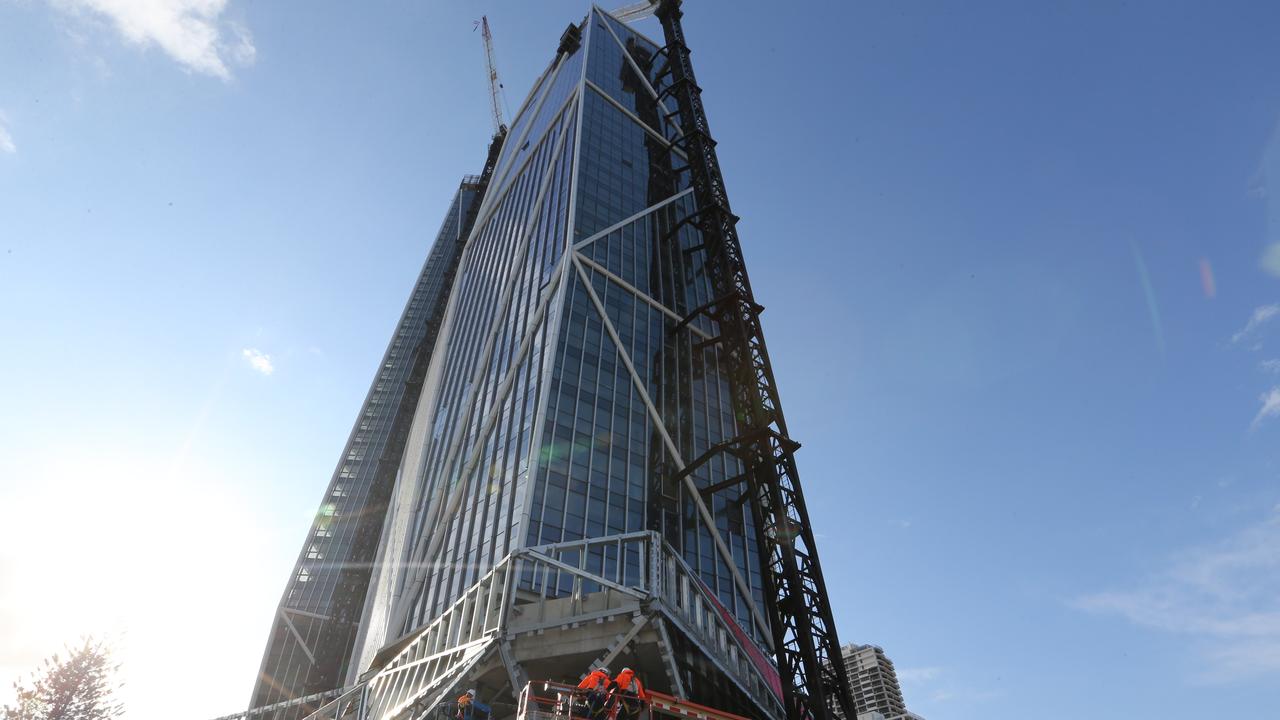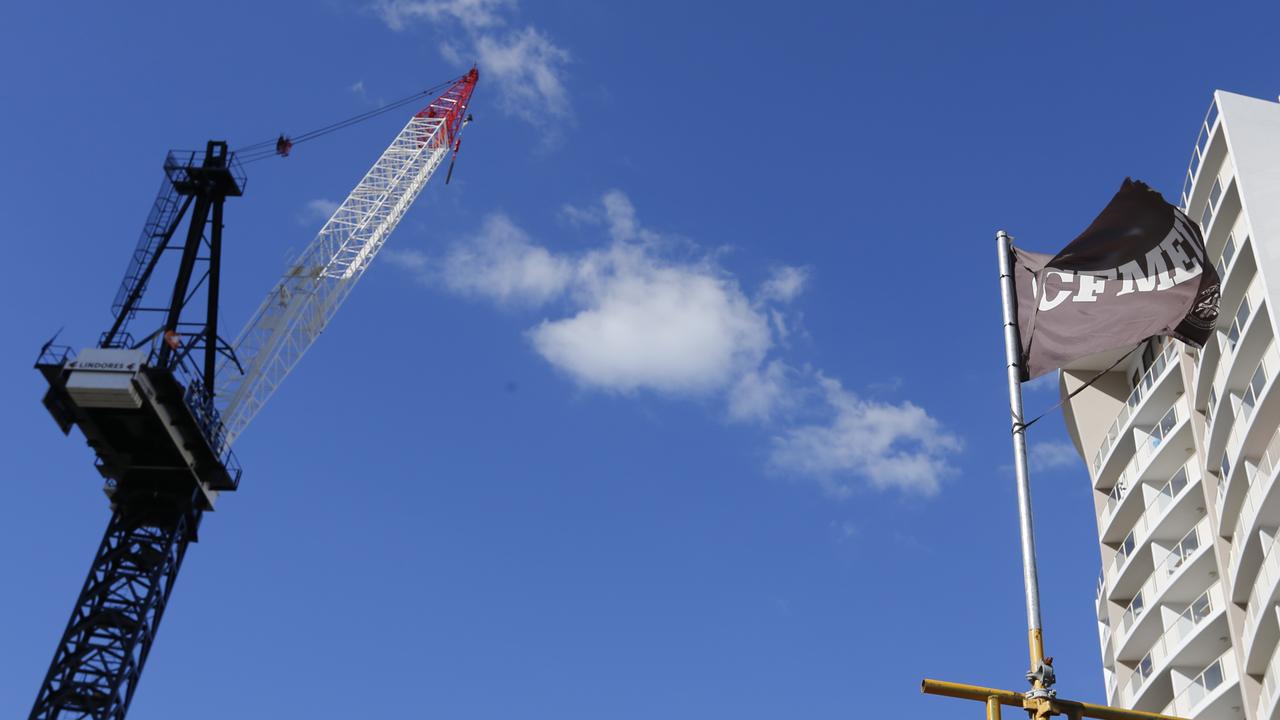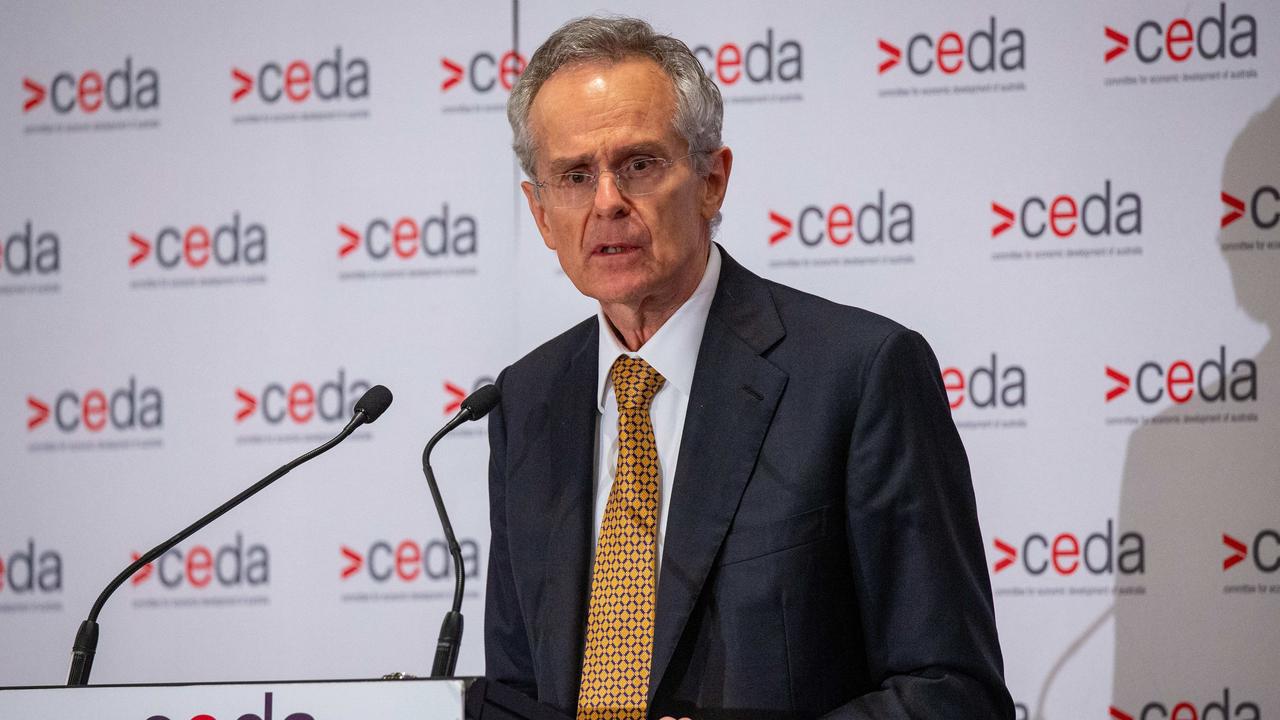It even gets to the point where some large projects simply won’t go ahead because of the risk of cost blowouts and labour supply. Financial sponsors such as banks won’t go near certain projects because they will be left holding that risk.
There’s also an invisible hit to the economy where more innovative and efficient builders refuse to bid for heavy infrastructure or big-ticket construction jobs. They are too smart to deal with the headaches and likely losses. This means the economy loses.
All this represents untold economic damage, meaning all Australians pay for inflated costs, allegations of corruption and stale work practices.
The new front in the cost blowouts will be across energy, mostly funded by private investors and even some union-aligned superannuation funds, where tens of billions will be spent over the coming decade.
Construction costs for big projects have surged more than 30 per cent in the past four years. Picture Glenn HampsonBusinesses working in construction and heavy infrastructure are watching how the allegations aired by 60 Minutes against infiltration of the CFMEU by bikies and underworld figures will unfold. Few are surprised by the allegations. Investors will be asking their own questions on building and contractors about the cost of doing business in the coming reporting season.
Many big national building players contacted by The Australian have their own tales of union clashes and strongly doubt much will change.
After all, the behaviour continues even after a royal commission into union corruption, Federal Court actions and even the now-abandoned Australian Building and Construction Commission. In fact, things have just got worse.
On Monday, the powerful CFMEU placed its Victorian branch into administration and promised to clean up and investigate allegations of wrongdoing.
The Albanese government says it is considering deregistering the union’s state construction division. Victorian Premier Jacinta Allan, who is footing the bill for road and rail builds, referred allegations of criminal behaviour inside the CFMEU to police and the state anti-corruption commission.
It’s all too little too late – Australia’s economy is rapidly slowing and governments are fast-running out of money to fund their infrastructure dreams.
Soaring costs
Project costs for building construction have jumped 30 per cent since March 2020 when the Covid pandemic brought work to a standstill, according to the ABS’s Producer Price Index figures.
Break it down by state and costs are up 33 per cent across Queensland and 28 per cent in NSW where there are a number of big-ticket infrastructure projects underway.
Victoria, the focus of the allegations where most building activity is underway, has seen costs push up 27 per cent, according to ABS numbers.
It was materials costs initially, but labour supply problems translate to services inflation. This is the inflation that is refusing to go away, and it means we all pay as it adds to interest rate pressure.
The lack of efficiency across building sites mean we all pay through a high-cost economy. Picture: Jerad WilliamsSoaring rates mean new apartment construction has stalled, just as more housing is needed.
As the economy slows, the cost of inflated wages and labour mean there is no marginal return for investment. And it’s the subcontractors that feel it the most and they are the ones going broke.
The Reserve Bank’s highly-regarded business liaison program is also warning of stresses. Last month, the RBA noted feedback from business where high-rise residential developments were stalled or not going ahead due to the high costs of construction relative to apartment sale prices and capacity constraints.
“While the pace of construction cost growth is easing as material costs improve and supply chains normalise, the cost and availability of labour remains a challenge,” the central bank said in feedback from the business liaison program.
Tackling unions
Few in the corporate world have been prepared to take on the CFMEU knowing the likely blowback to their own operations.
Governance issues mean many simply won’t deal with the union, and that means not being prepared to bid for jobs, further undermining competition.
Former Boral boss Mike Kane was prepared to speak out, although it came at a cost of more than $30m in lost business to his company.
Kane famously stood up to former CFMEU boss John Setka by refusing to bow to union demands not to supply concrete to Daniel Grollo’s projects.
Setka, the CFMEU Victorian construction division secretary, resigned on Friday.
Boral soon found itself subject to a boycott action across sites in Melbourne, where developers chose other suppliers to keep the peace on building work sites.
Former ACCC boss Rod Sims spent five years pursuing the CFMEU in the Federal Court. Picture: NCA NewsWire/Christian GillesFormer competition regulator Rod Sims then became one of the few regulators prepared to take up the cause. He spent five years as ACCC boss pursuing the CFMEU through the courts over its actions on Boral. Setka was named as a defendant in the ACCC action.
In 2018, a Federal Court ultimately ordered the CFMEU to pay $1m in penalties for secondary boycotts against Boral in construction sites across Melbourne. This was for the union’s “Ban Against Boral” campaign. At the time, it was the highest penalty awarded for a secondary boycott. But this failed to bring about a change in behaviour.
The court found the union’s behaviour was designed to “cause substantial loss or damage to Boral”.
“The whole purpose of the Ban Against Boral was to cause a substantial loss to Boral, by deterring customers (existing or potential) from using Boral in metropolitan Melbourne,” Justice John Middleton said.
“The real harm to Boral was damage to its reputation by the threat that Boral trucks would be hindered or delayed in the delivery of concrete. This threat was made known to certain customers, some of whom changed their supplier of concrete away from Boral”.
However in 2022, a separate finding involving a boycott acquisition agreement between the CFMEU and Queensland builders Hutchinson was overturned by a Full Court.
Innes Willox, the chief executive of the national employer association Australian Industry Group, urged a restatement of the Australian Building and Construction Commission.
Businesses large and small in the construction sector “have long been forced to work under intimidation and the threat of reprisal if they did not bend to the CFMEU’s will”, Willox says. This means “all Australians are paying more for inflated construction costs”.
- Forums
- Political Debate
- Victorian CFMEU branch placed into administration over allegations of criminal links
There is a terrible inflationary cost to the serious allegations...
Featured News
Featured News
The Watchlist
RCE
RECCE PHARMACEUTICALS LTD
James Graham / Dr Alan Dunton, MD & CEO / Non-Executive Director
James Graham / Dr Alan Dunton
MD & CEO / Non-Executive Director
SPONSORED BY The Market Online








There is a terrible inflationary cost to the serious allegations of corruption through construction unions, and it cascades in a poisonous way through the economy.